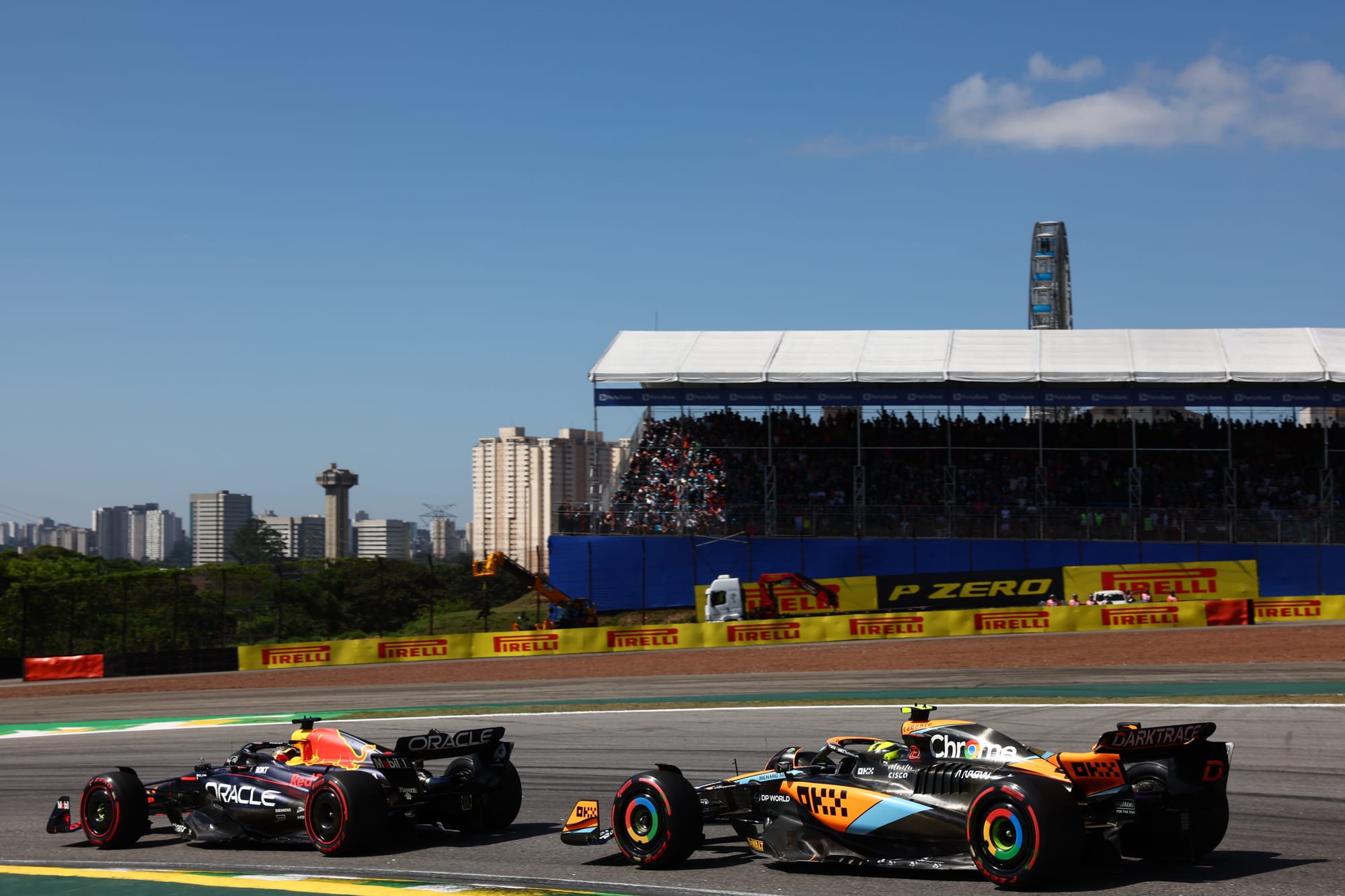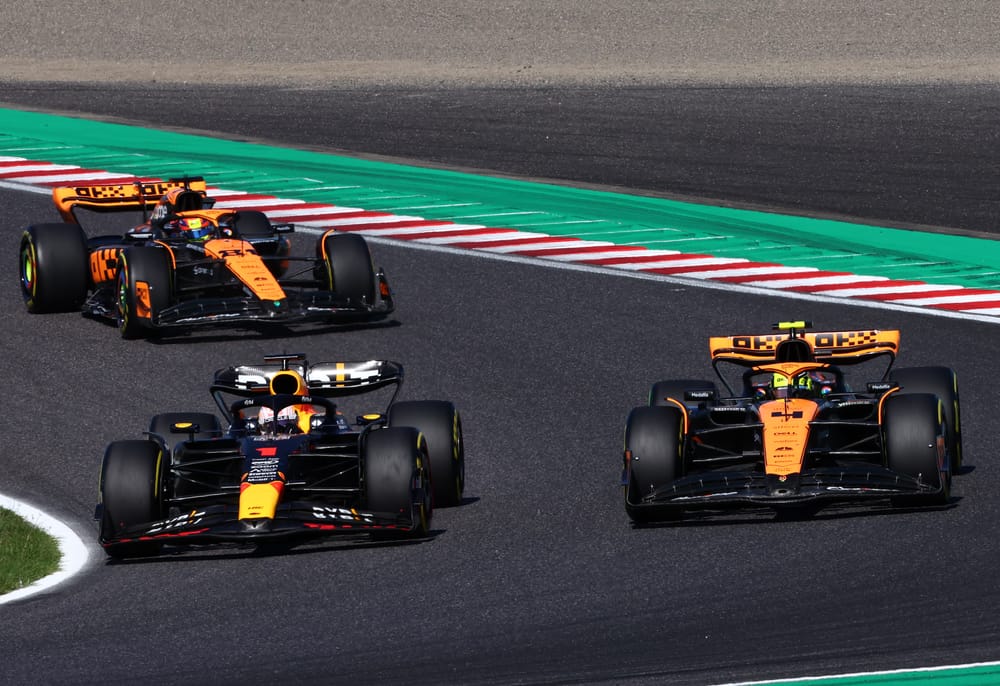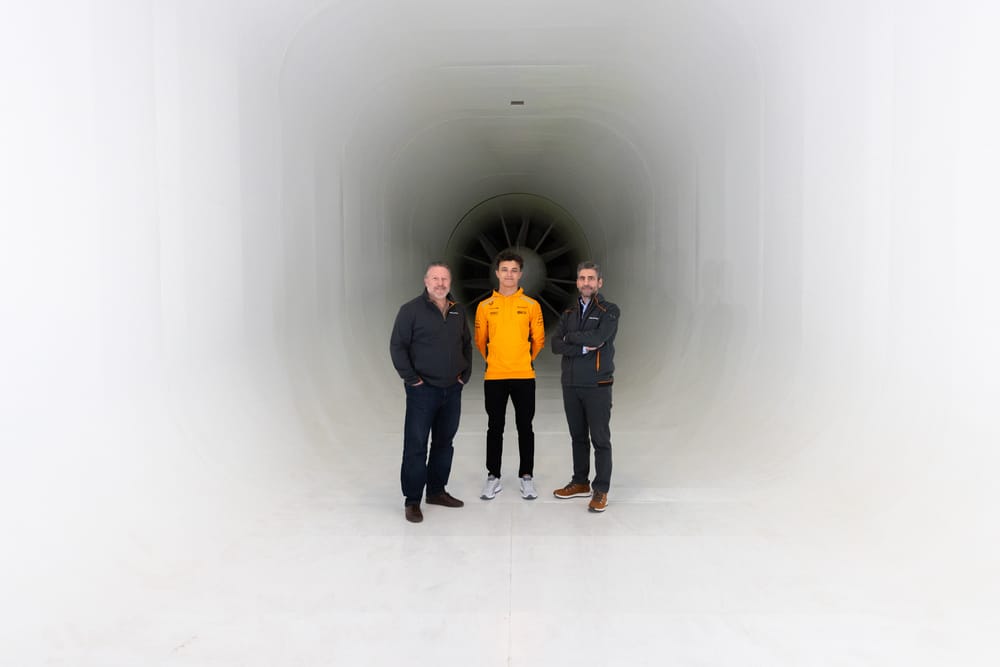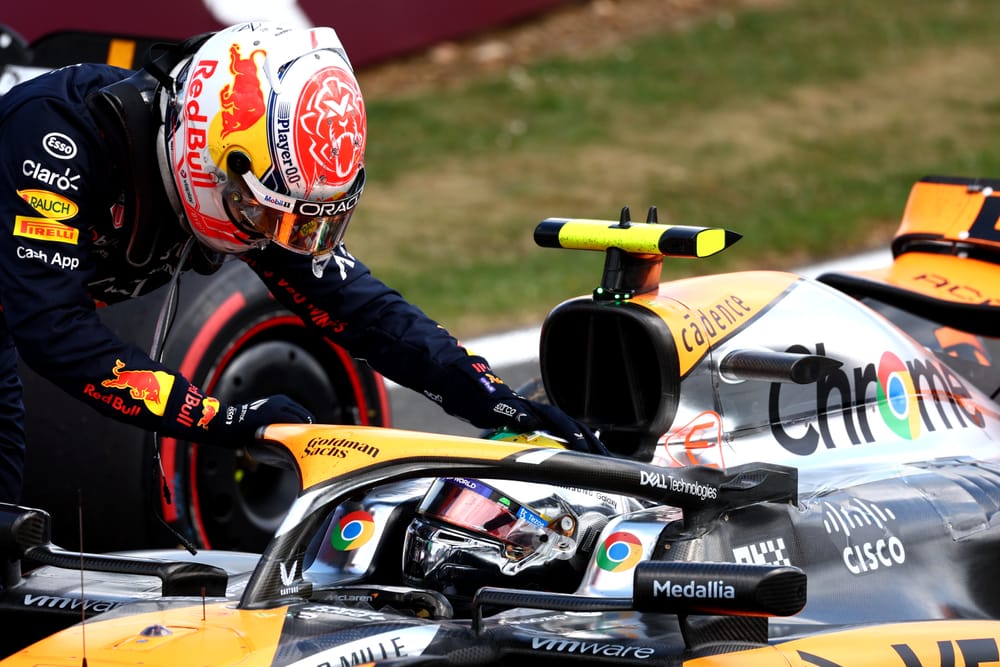Up Next

In assessing McLaren’s 2024 season prospects at McLaren's surprise early 2024 launch, Andrea Stella sounded a note of caution regarding Red Bull. For one very specific reason: he fears that although Red Bull produced relatively few updates last year on its record-busting RB19, it may have been continuing to develop it in the virtual world.

The cost cap restrictions – infamously breached by Red Bull in 2021 – and the superiority of the car meant Red Bull saw no need to produce a constant stream of updates through the season. There were just two major bodywork changes, both around the radiator inlet area, through the season: these appeared in Azerbaijan in April and Hungary in July.
Typically, any performance developments found in simulation will be converted into physical parts as quickly as possible and fitted to the car. But there are exceptions, sometimes resource-related or because of lack of budget.
For example, Sauber in 2022 was severely restricted by a production bottleneck and reported that upgrades which had been signed off before the summer break didn’t get onto the car until the Japanese Grand Prix in October.
In 2018 before Force India transitioned to Racing Point mid-way through the season, there had been no developments parts manufactured at all – but the development programme had been continuing at full speed in simulation, as the team’s technical director at the time, Andy Green, explained: “Even when we were not developing on track at least we developed back at the factory, with the tunnel and CFD programmes, so we still carried on learning. That was important.
"We would develop the parts in simulation but they wouldn’t get made.
"Then those parts would be redesigned as the development continued. By the time they were actually made they were completely different parts to those that would’ve been made two months earlier.”
Although Red Bull will not have been compromised by either resource or budget restrictions, the cost cap limitation and the underlying advantage of the car may well have led the team to spend its budget in areas other than producing new development parts. This would still allow Red Bull to develop its understanding throughout the season even when the car’s specification remained fairly static.
“When we think specifically about Red Bull,” said Stella at McLaren’s livery launch, “there's one element that obviously I think puts everyone in doubt as to what's going to happen in 2024 - and it's the fact they haven't developed their car very much.
"So the question is have they cashed in, accumulated development that they will capitalise onto next year's car?
"This is my theory. I can't think that Red Bull were not in condition to develop their car - but they might have decided not to deliver upgrades.”

McLaren’s ’23 season was characterised by a spectacular performance boost from Austria onwards as its own expensive upgrades took effect.
Stella is happy that in conceiving the 2024 car the performance gain gradient is still relatively steep.
“You always get to the point in a set of regulations where diminishing returns set in," he acknowledged. "It could be that there's some areas of the car where you realise maybe the investment here is not worthwhile.
"But effectively, so far, we have not found it [that point]. If you look at the car and the suspension, tyres, aerodynamics; they all have still quite a lot to offer in this generation of regulations.
"So what we are looking at very carefully is to make sure we are in condition to cash-in these performance opportunities that do seem to be available. This is reflected in the numbers.
"We can't fool ourselves, we need to see these numbers go up and right now it's what we seem to be finding in development. But it's a slightly different story when it comes to competitiveness on track because this depends on what your opposition has done.”
And when it comes to said opposition, it is again Red Bull whose RB20 could impose a hard limit on the results available to McLaren and the rest.
"Red Bull certainly seems like they didn't develop last year to the level they could've if they wanted to," said CEO Zak Brown, echoing Stella's point.
"So that could be an unpleasant surprise for all of us."





